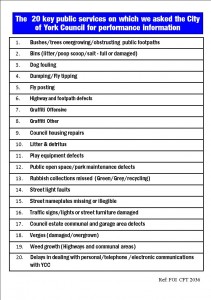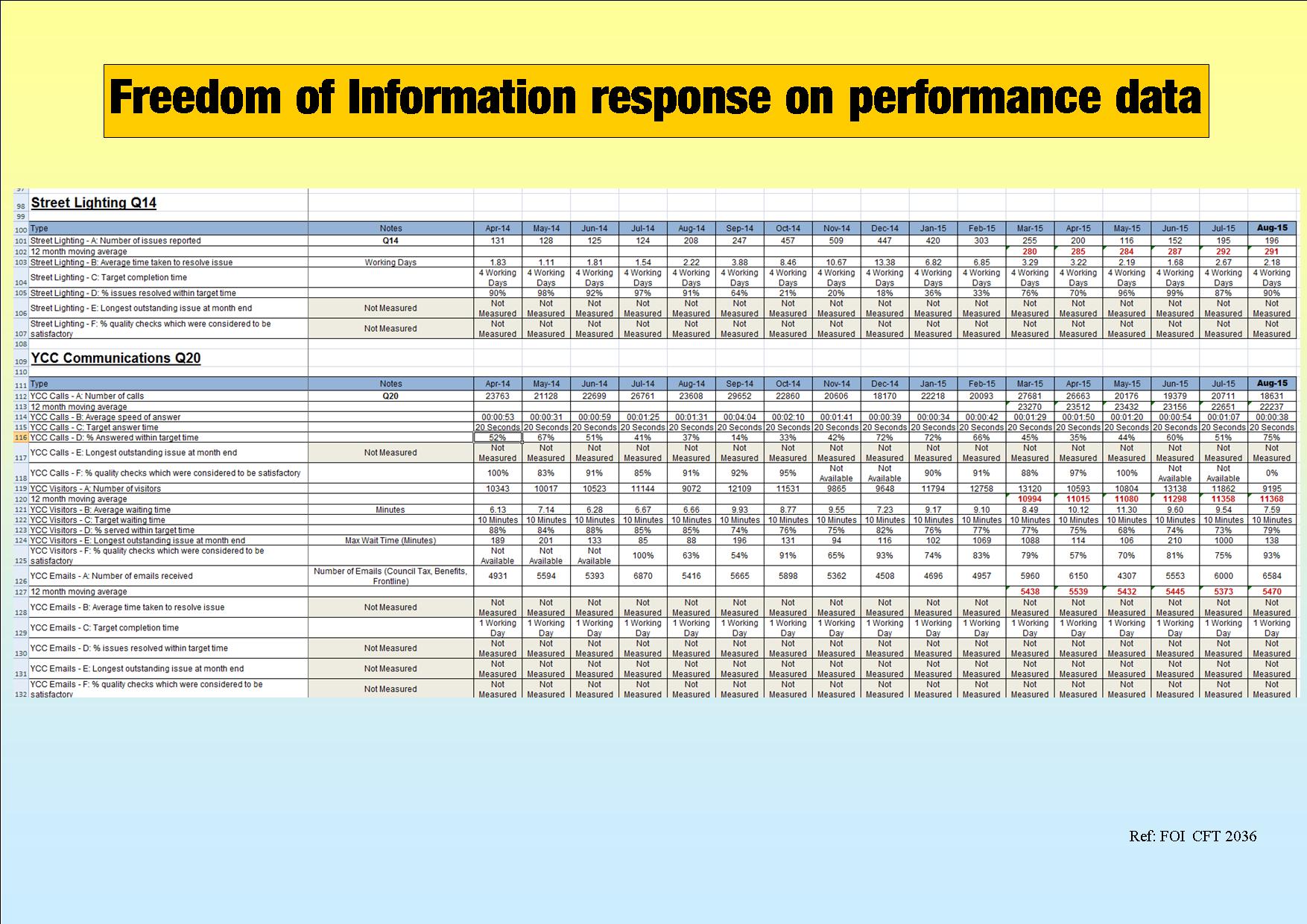A response to a recent Freedom of information inquiry suggests that in many cases they don’t.
 We asked for performance information on 20 key Council service areas (see left). They are the kind of services that every resident is likely to use – or see – each year.
We asked for performance information on 20 key Council service areas (see left). They are the kind of services that every resident is likely to use – or see – each year.
Performance information had been gathered routinely, and reported publicly, up to 2011. However, over recent years, the York Council has seemed to be increasingly reluctant to provide information about basic service standards.
The Council said that it didn’t measure how many issues it received – or how it responded – for five public service areas. They were:
- Dog fouling
- Fly posting
- Play equipment defects
- Public open space/park maintenance issues &
- Council estate communal and garage area defects.
That shocked us – not least because some involve safety issues.
We asked for information on the:
A Number of issues reported
B Average time taken to resolve issue
C Target completion time
D % of issues resolved within the target time
E Longest outstanding issue at the month end
F % quality checks which were considered to be satisfactory
The Council was able to provide volume information, on the number of issues that had been reported, for most of the activity areas.
Areas where the number of problem reports were increasing included
- Trees, bushes and weeds overgrowing paths
- Graffiti &
- Street lighting faults
The number of reports in other activity areas was fairly stable over an 18 month period.
Looking at how quickly issues were resolved, the only target times regularly achieved were for clearing full litter bins “within 3 working days” (a fairly generous target) and removing “obscene” graffiti within 1 working day.
If you telephoned the Council offices in August you had a 75% chance of your call being answered in 20 seconds.
A visitor would have waited, on average, 8 minutes to be seen.
However residents emailing the Council and expecting a response within one working day, would be disappointed. The Council has stopped recording the length of time taken to deal with electronic communications.
So what’s the longest wait that I can expect?
Well the Council doesn’t measure the longest outstanding issue. So no one knows.
But there must be some quality checks?
Well actually no. The Council says that it doesn’t record the results of quality checks undertaken by inspectors nor does it undertake any customer satisfaction surveys with complainants.
So work undertaken isn’t routinely checked and recorded.
Maybe the issue hasn’t even been resolved? Just ticked off on the work management computer?
Who’s to blame?
Poor management practices, Councillors, Directors, computer systems? The Chairs of the Council’s Scrutiny Committees – who should guard the public interest – have generally failed to table performance information.
So perhaps everyone shares the responsibility?
Will they put things right?
Maybe. The, still relatively new, Council deserves some time to put things right. But they need some quick wins to restore public confidence.
They could start by putting these, and other, basic KPIs on their “open data” web site and updating them each month.
The sooner that a new Chief Executive is appointed by the Council – and its management vacancies filled – the sooner we can expect to see an improvement in service standards.
The full set of results, covering the last 18 months, can be downloaded by clicking here or here (Sendspace Excel spreadsheet)
Our thanks to the FOI team at the Council who clearly tried very hard to provide the information that we had requested.



